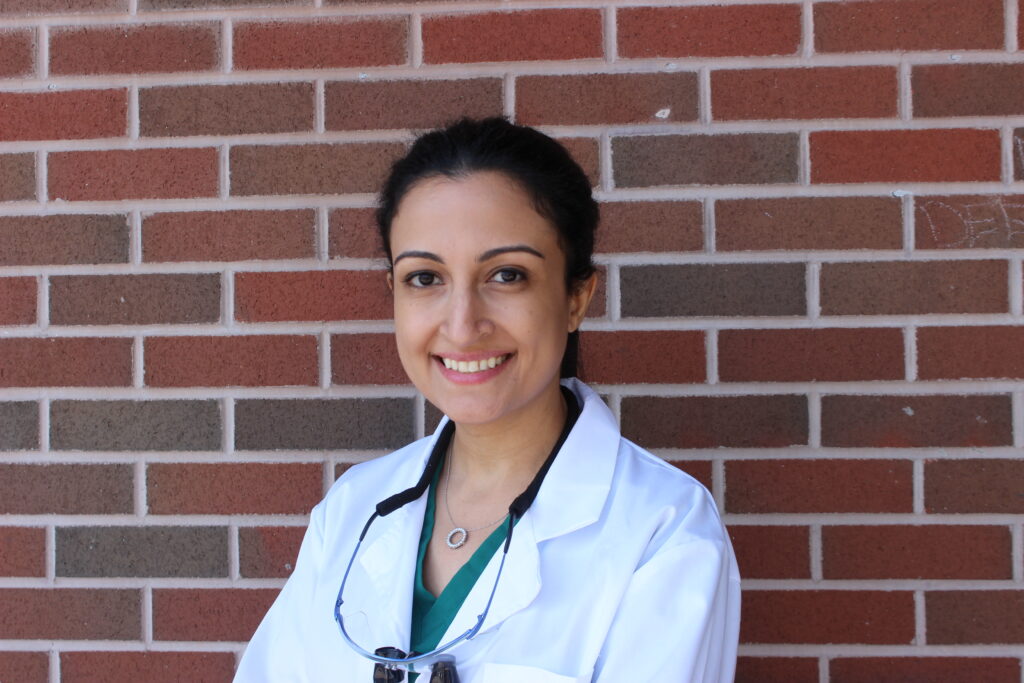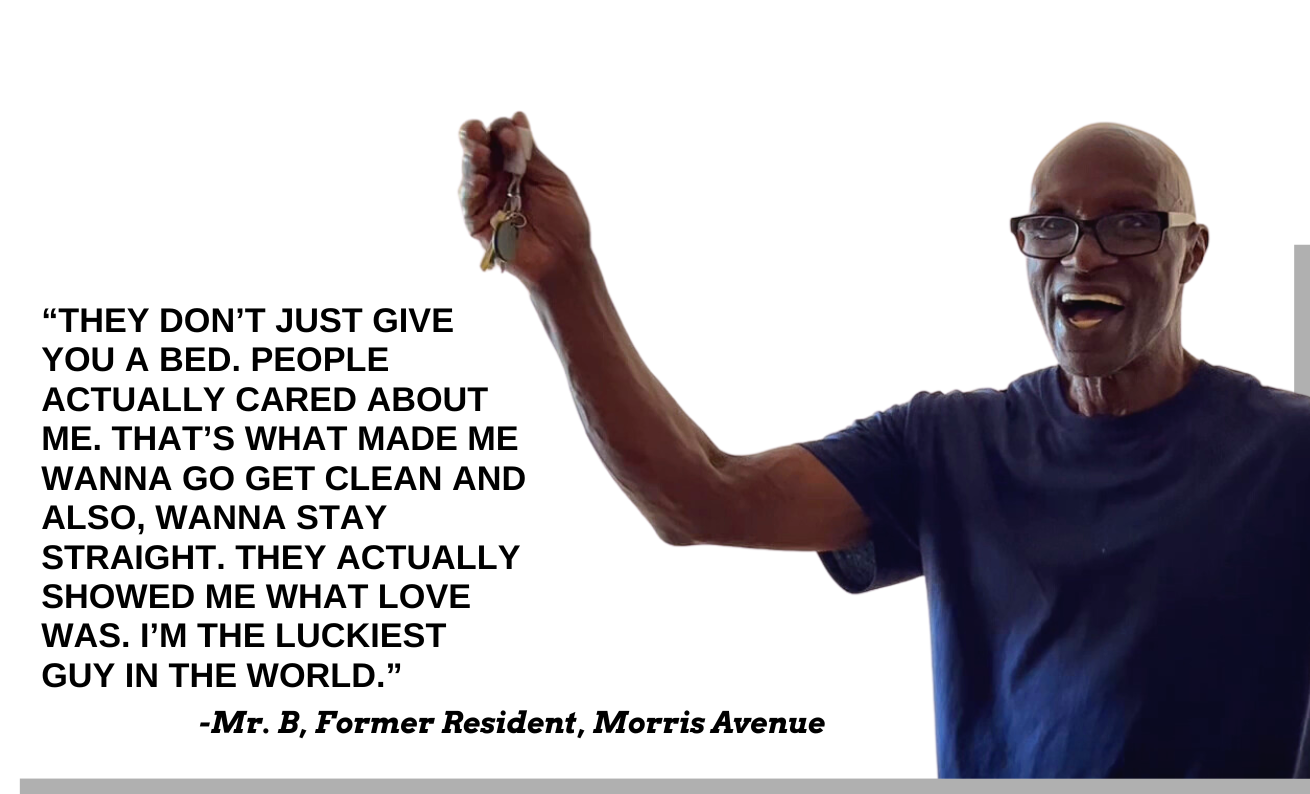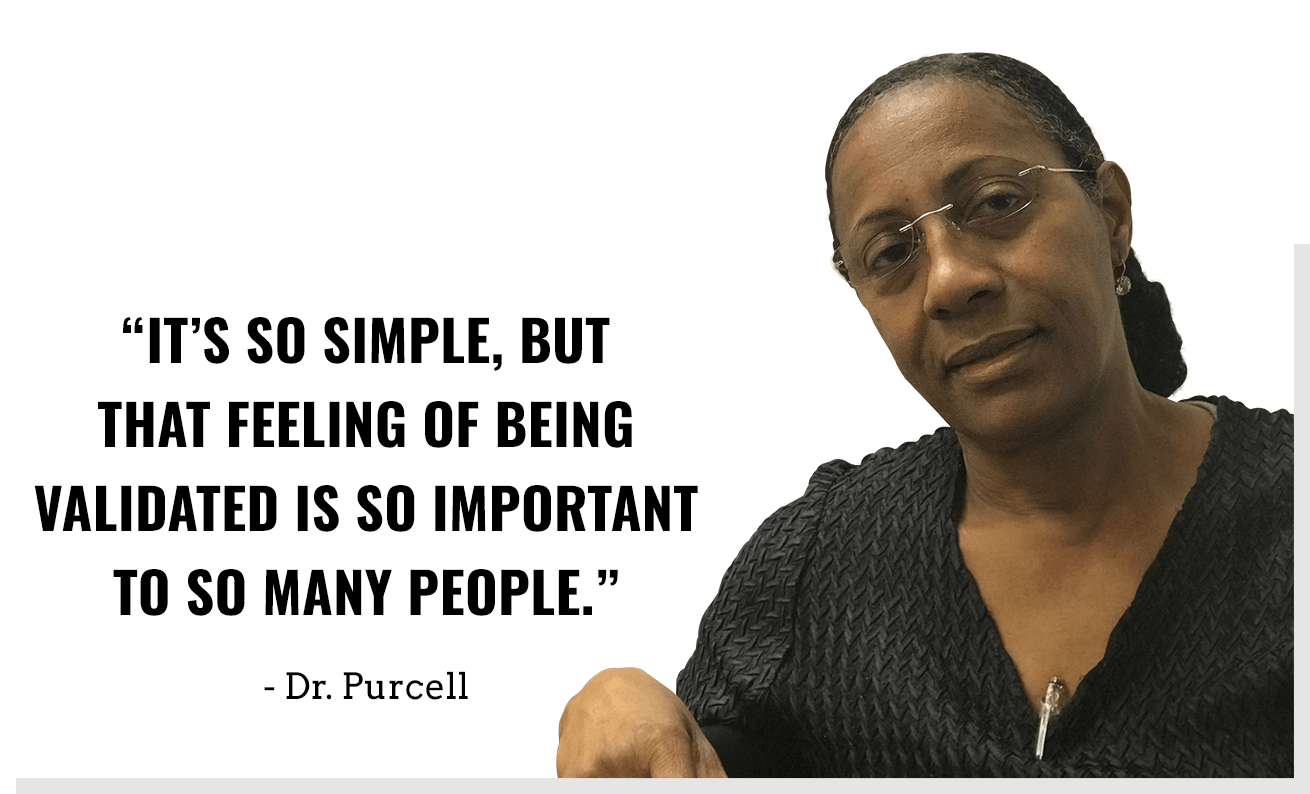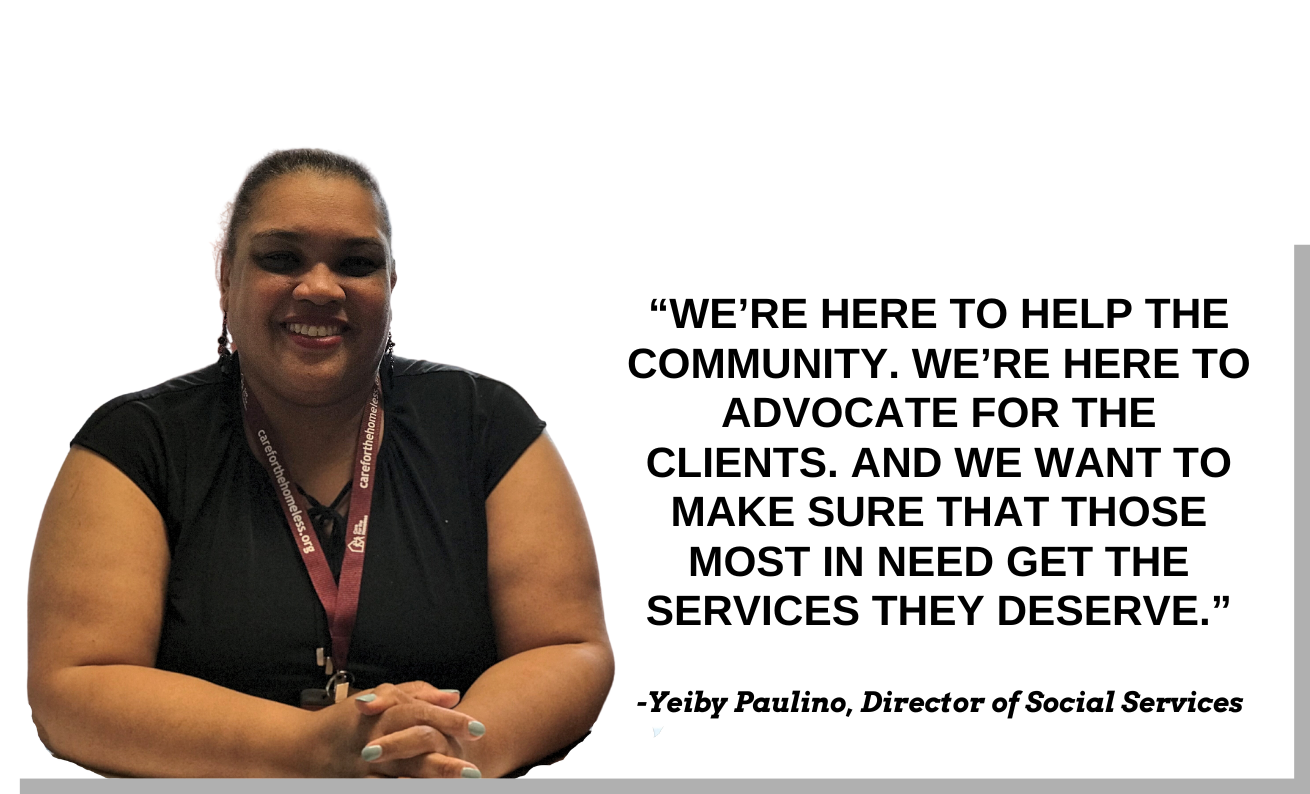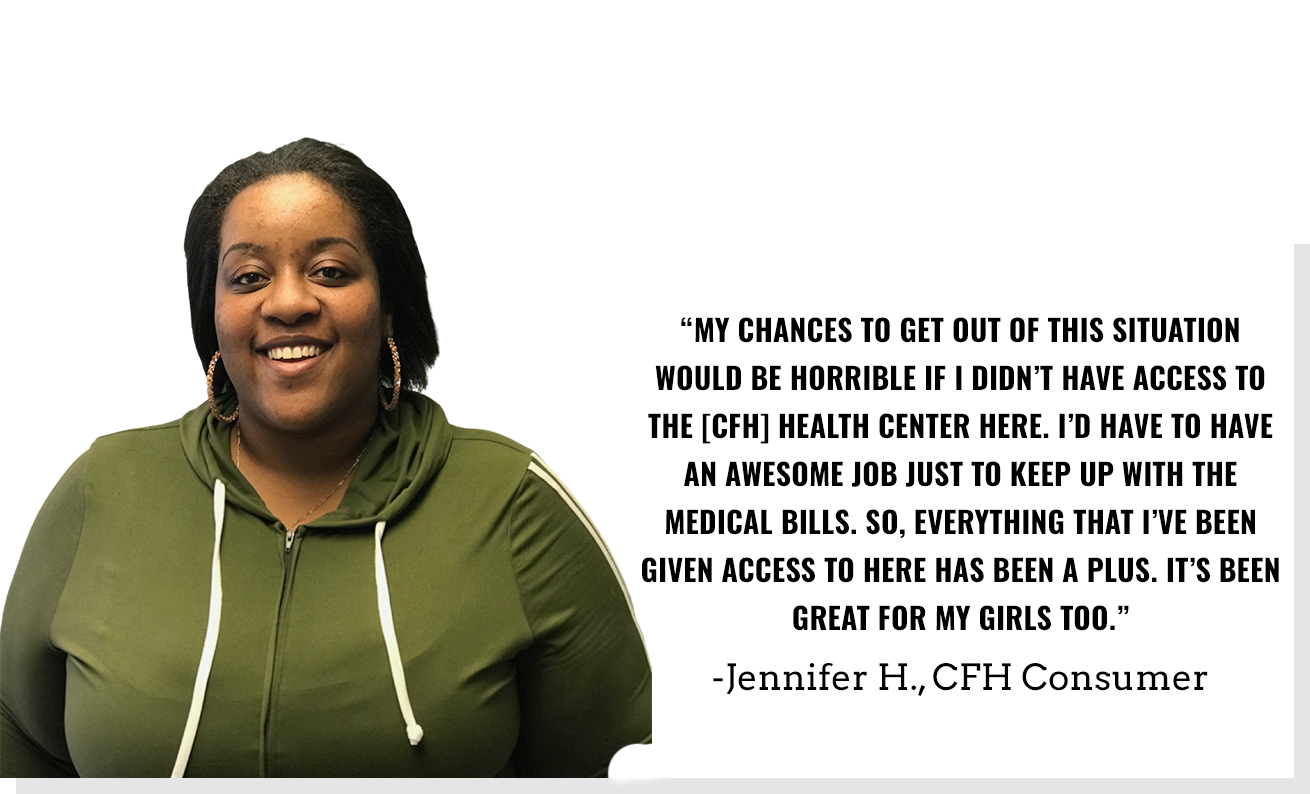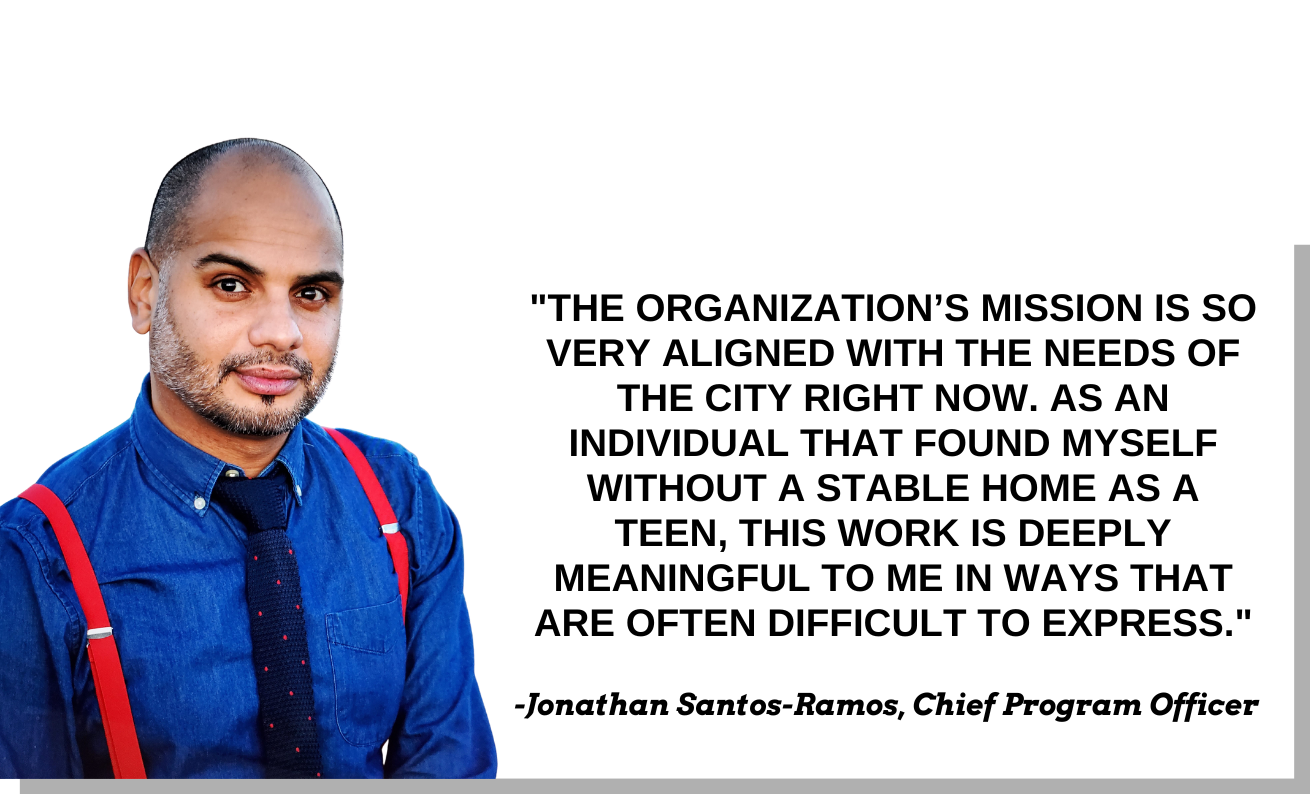“The high-quality dental care our patients deserve”
We sat down for an interview with our Director of Dental Services, Dr. Mary Zaklama, at our Part of the Solution (POTS) site in the Bronx.
Watch an abbreviated version of the interview:
This interview has been edited for length and clarity.
My name is Doctor Mary Zaklama. I am the Director of Dental Services at CFH.
Where are you from and when did you come to New York City?
I moved to New York City many years ago from Rochester, N.Y., where I completed my undergrad and master’s degrees in health and safety management. I then got accepted to Columbia University Dental School and moved to New York City.
How did you find out about CFH and why did you want to work with underserved patient populations?
A few years ago, I was presenting a research project at the Greater New York Dental Meeting. The project focused on the barriers to dental care for underserved patient populations in upper Manhattan and the Bronx. These barriers included fear of pain, lack of trust, cost, and language. At that point, I started having a lot of appreciation for the needs of our underserved populations. I decided that I was going to dedicate my career to serving patients in underserved areas and working to reduce these barriers.
Why did you choose to work with CFH specifically?
CFH’s mission aligns with my goals. CFH is working not only to reduce dental care barriers but also to help patients by supporting them and fighting homelessness. My background in healthcare management and my dental skills prepared me to work as a dental director and make a significant impact here.
Since day one, when I came to the main office, everybody has been very welcoming, and it’s been a pleasure working here. The staff at POTS are very collaborative. Everybody is very supportive, and we work as a team to make sure that our patients are very well taken care of.
Have you always wanted to go into dentistry?
I actually explored many career paths before becoming a dentist. I studied civil engineering during my undergrad and then I did my master’s degree in health and safety management; this is what brought me close to healthcare. However, I wasn’t working directly with patients. And this is when I decided that I wanted to become a dentist. My background in healthcare management and my dental training prepared me for this position as the dental director at CFH.
What are your responsibilities as a provider and how do you go about performing them?
I have many responsibilities here at CFH, with one common goal: To always serve our patients and ensure that they receive the very high-quality dental care that they deserve.
I see patients in the clinic, take care of their oral health needs, educate them about their conditions, and guide them on how to take care of their oral health and overall health. I’m also responsible for supporting my dental team and ensuring that the clinic runs efficiently. Currently, I’m also working with the leadership team at the main office on growing our dental department to serve multiple boroughs.
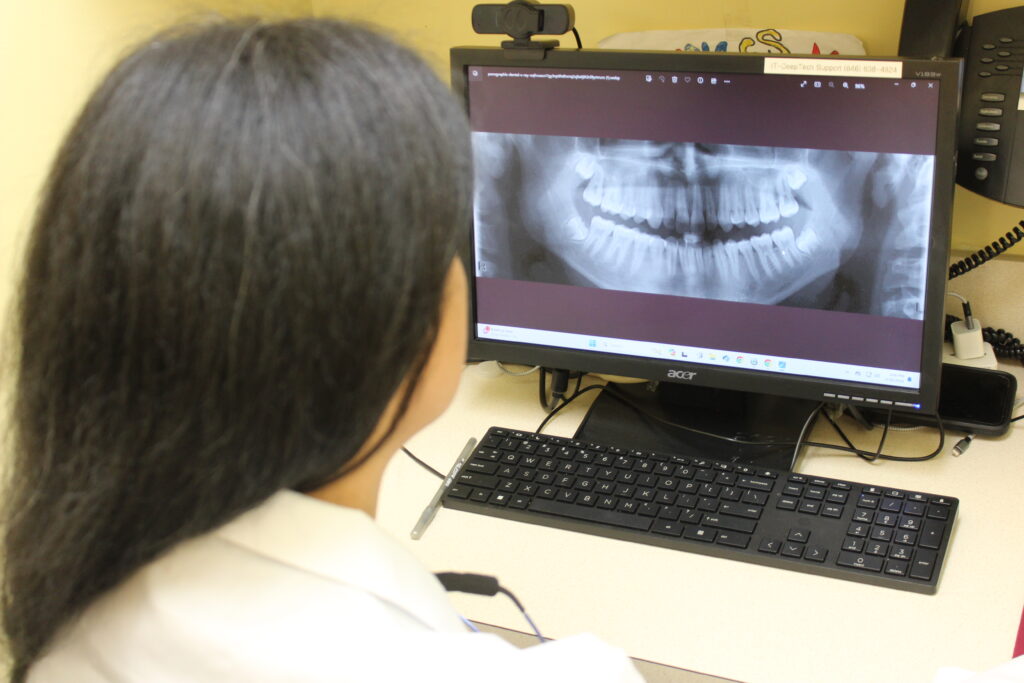
What is your personal philosophy when it comes to working with people experiencing homelessness?
Every patient that comes to our clinic, regardless of their housing status, always receives the high-quality dental care that they deserve. In addition to providing dental care, we also make sure to teach our patients about their conditions. This empowers them to make their own decisions for better oral health and overall health.
Who are some patients that have struck a chord with you or impacted you?
I was honored to take care of a patient who just came to the U.S. with four of her children. She came to the clinic as an emergency patient in pain from a toothache. She was very overwhelmed by her housing situation and by putting her kids in schools in the U.S.
She shared with me that she doesn’t go to the doctor or dentist or take her kids to the pediatrician because she doesn’t trust doctors. But she came today because she was in pain, and it was an emergency. We took care of her oral health needs and she left happy.
In a few weeks, she started coming back for preventative care. She started coming back for exams, cleaning, and checkups. What made me very happy is that in a few weeks, she started bringing her children to the clinic. And then, not a long time ago, she shared with me that her oldest child got accepted to college. Every time she comes to the clinic, she makes me very happy and proud because she got the help she needed for herself and her kids.
That’s fantastic. Do you have a lot of patients like that, who don’t like going to the doctor?
Many of our patients haven’t been going to the dentist regularly for a while, mostly because they had an unpleasant experience or a lack of trust. Cost can also be a large barrier to patients in many situations.
Do you see a lot of families and kids?
This is one of the things that brings me a lot of joy—when I see a family, one person, one patient, and then they start coming with their family members. It makes me very happy.
And do they end up coming back regularly?
They do. After they get most of their treatment and any dental work that needs to be completed, they start coming for six-month checkups and cleanings.
Can people just walk in?
We have a lot of walk-ins, and we also get a lot of scheduled patients. We always accept same-day treatment.
And how do folks find out about the clinic?
A lot of people come from the neighborhood, so it’s word-of-mouth. Also, if you’re in the area and you [search online] for “emergency dental,” we come up there, so patients can find us.
And why do you feel this work is important for this community?
One of my goals and hopes for the clinic is to make patients comfortable with coming for elective procedures and preventative care, rather than just emergency visits. Especially since we know that oral health is very connected to your overall health.
Periodic oral cancer screenings are extremely important. There is a connection between your gum health and many other medical conditions, so I would love for patients to start coming regularly and not only when they need it.
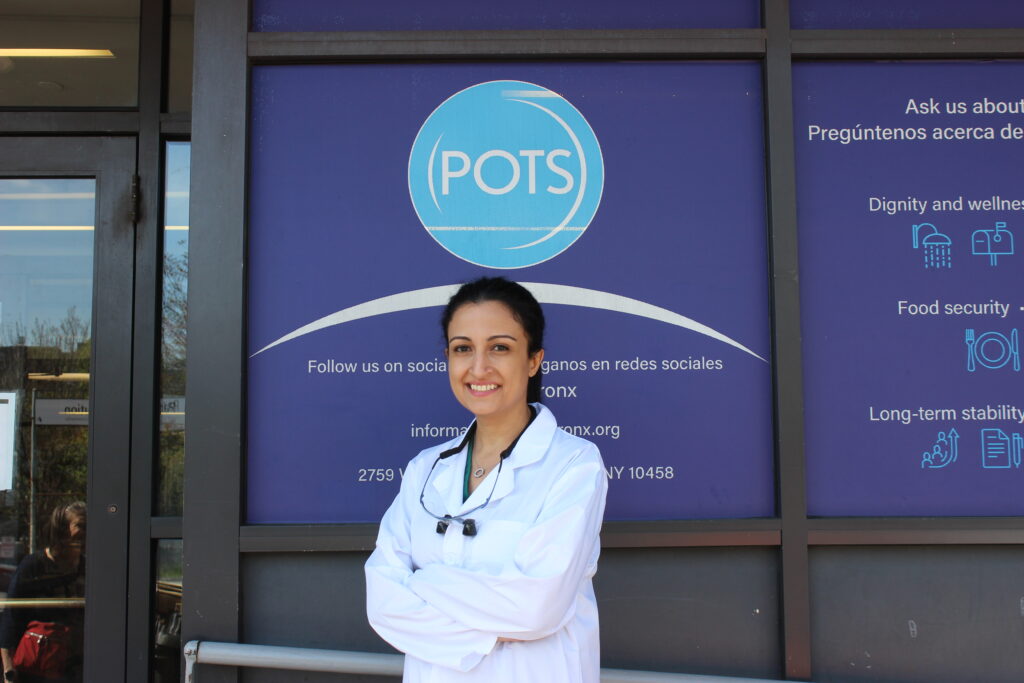
And are patients provided with any other services when they come here?
Each clinic has different services that they provide. At POTS, we have primary care and we can also schedule patients for mental health visits.
That’s great. And do we see a lot of that like people taking advantage of those services?
We do. A lot of patients do now, because when we see a patient in the dental department, we review the medical history and always encourage and help them schedule another appointment. If not on the same day, most of the time, they will leave with an appointment scheduled with the medical team.
And if they need any specialty that we can’t provide at the moment, we give them a referral. We always guide them to places where they can go and where they can seek help for any specialties that we do not have right now.
And how many dental clinics like this are there?
We are growing now. At the moment, we are seeing most of our patients at POTS. The other day, I had a site visit for a new clinic in Manhattan and I got a chance to meet with Dr. [Tawana] Hill, Ronald [Lawson], and Jonathan [Santos-Ramos] from the main office. They’re very knowledgeable and very supportive. Pretty soon, we’re going to have multiple clinics in multiple boroughs.
That’s fantastic. And what do you think is the advantage of having a clinic that focuses both on dental and other health needs?
Most of our clinics have a dental department and also have internal medicine or primary care at the same site. I believe having the two clinics at the same site provides a big advantage for our patients, especially patients who prefer to come to appointments back-to-back.
We serve each other, in terms of, if I get a patient who has medical needs, they can be seen on the same day for primary care. And they do the opposite as well: If there is a patient who comes for a medical appointment and they have dental needs that need to be addressed on the same day, we usually accommodate the patient.
And who were some people who have inspired and helped you along the way?
I was actually very fortunate to have a lot of support from my family during my very long training. Particularly my grandmother; she’s been an inspiration for me all my life.
My dental team here at POTS, they’re wonderful. They’re always very flexible and always take care of our patients. The staff are very helpful and very cooperative; the medical team and dental team always collaborate to take care of our patients.
I’m also getting a lot of support from the main office for the POTS clinic and for growing our dental department. I have regular meetings with Dr. Hill and she always makes herself available for us.
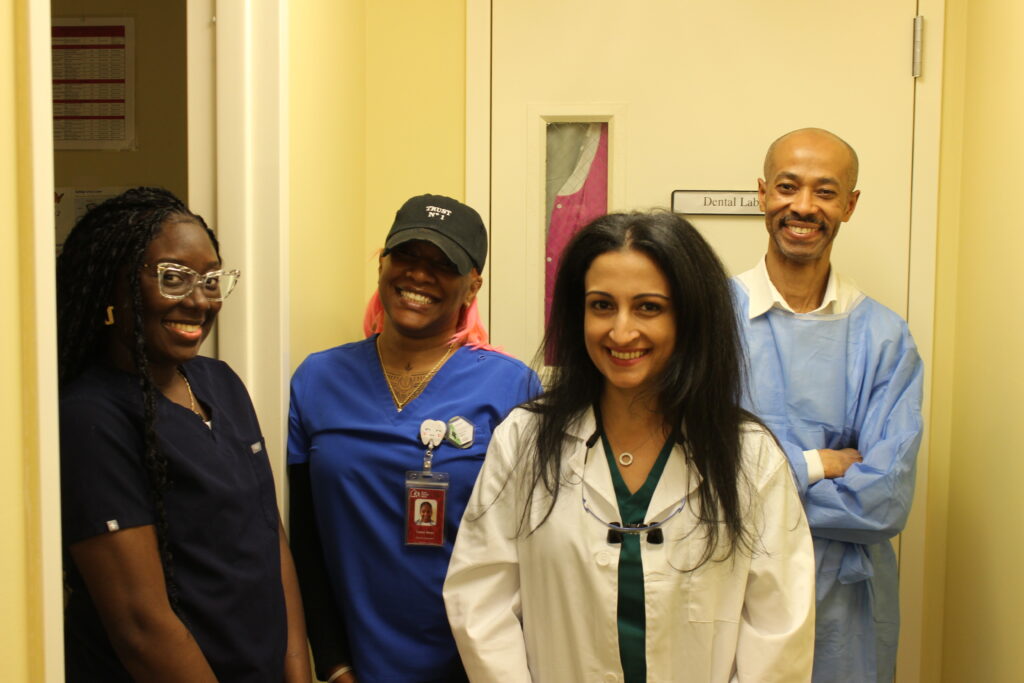
What are your hopes for the future as a provider?
As I mentioned a bit earlier, my hope is to start seeing patients for regular visits, and that they start coming for checkups, regular checkups, and cleanings. I also want patients to prioritize taking care of their teeth and making better choices for themselves. Coming in for oral health care, for oral cancer screenings, and to take care of their gum health.
And my goal for the future is, as I mentioned earlier, to expand care so patients in multiple boroughs can find care anywhere. We need to expand dental services in all five boroughs to reach the patients who need our services and to reduce the barriers to oral healthcare.
Wonderful. Is there anything else you want to add?
I want to thank you for giving me the opportunity to speak about our dental department and to spread the word about the importance of oral healthcare. And that’s it. Thank you.
Great. And final question, what do you recommend for keeping our teeth healthy?
Brush your teeth and floss the teeth that you need to keep.
(Jokingly) But not the ones you don’t like.
(Laughs) The ones that you don’t need to keep, don’t floss them. But the ones that you feel are important to keep? Floss around them.
That’s great, honest advice. I’m going to take that. Thank you so much.
